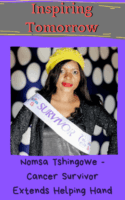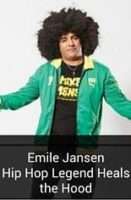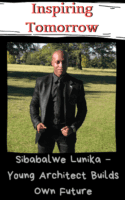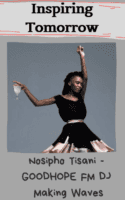It took courage and love for a 28-year-old woman, who was diagnosed with cancer in 2014, to start an organisation which extends help to people living with cancer and the families of those people.
For Nomsa Tshingowe, a social worker by profession, cancer is not a “death sentence” because, as she puts it, there is life even after one has been diagnosed with cancer. She heads Cancer 0 Thirty 5, an organisation which provides for the needs of, and provides knowledge and counselling to, cancer patients and their families.
“I always tell people that the day one is diagnosed with cancer, one has won the first fight. Some people don’t live to get diagnosed. Just have faith and hope that you will be healed. With the right treatment and doctors, cancer can be healed. Just remember that early detection saves lives.”
It has been five years since she was diagnosed with stage 3 osteosarcoma cancer at the tender age of 23.
“Even when cancer stripped me to zero, it couldn’t take away my voice and courage to fight. I came out a stronger person than I was before. I am using my own experience to help other cancer survivors and their families because I understand the effects cancer has on patients and their families.”
Her family played a vital role in her life just after the cancer diagnosis.
“My dearest mom has always been my pillar of strength. She was always willing to get more and more information on cancer so that she could help me. My colleagues also played a huge part in my life, and also my friend Godfrey Vukela. Godfrey was always ready to take me wherever I wanted to get, especially the travelling between my home and Polokwane.”
Nomsa is disturbed by the lack of support which cancer patients and survivors have to deal with in most cases in rural areas. Some people do not understand cancer and it is always good to get more information about cancer to avoid too much mental pressure and grappling with uncertainty.
“I remember when I was still receiving the cancer treatment some people thought I was dying. I lost weight because I couldn’t eat, was in severe pain, was nauseous and vomiting. I was also fatigued most times. It affected me physically, financially, emotionally, and psychological. At some point I was depressed, I wanted to give up with life. It is important for people to treat cancer patients with love and respect, for that’s all they need. Also, show support.”
She indicates that cancer has always been there and that signs of most cancers are common. Many people live with signs of cancer without any knowledge about them.
“You’ll never suspect it is cancer. It is important for people to consult when they are in pain or see signs they don’t understand in their bodies. I clearly remember that my knee was always swollen and very painful and I couldn’t walk or travel long distances.”
However, she thinks that much is not being done with regard to cancer awareness especially in the rural areas whereby cancer is regarded as the work of witchcraft or a curse and is considered a taboo.
“I had decided to focus in the rural areas as a helper because there is lack of cancer information education and activism help at a ground level. I think the government needs to prioritise cancer like any other chronic illness.”
She is now on hand for disadvantaged residents, mostly from rural areas. The organisation’s other goal is to feed as many families as possible. The initiative’s goal initiative is to support childhood-and-youth-cancer survivors so that they can enjoy a quality life, despite cancer, and provide support to their families.
“Once one family member is diagnosed with cancer, the whole family system gets disrupted and they need all kinds of support. Some are unemployed and it frustrates them not knowing where to get the next meal from. Others are family members who are looking after a family member or child who was diagnosed with cancer at the hospital.”
She resides at Mulima village, Limpopo. For more information, phone Nomsa at 072 435 8777 or reach her on Facebook at Tshingowe Nomsa or on Twitter @nomsatshingowe. The organisation’s Facebook page is Cancer 0 Thirty 5 Awareness.
***
Tell us: What lessons did you learn from Nomsa’s story?






